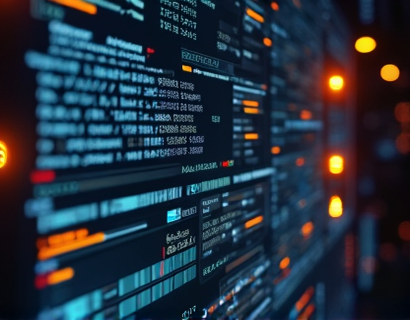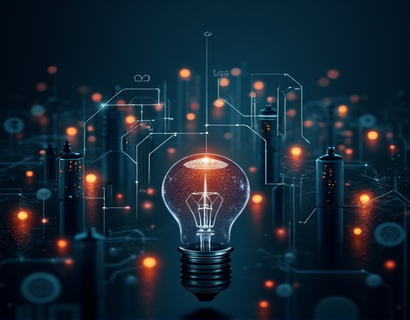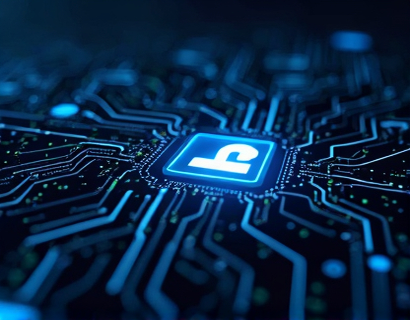Transforming Digital Ecosystems: The Synergy of AI and Crypto for Enhanced User Experiences
The modern tech landscape is rapidly evolving, driven by the convergence of artificial intelligence (AI) and cryptocurrency. This fusion is not just a technological curiosity but a transformative force reshaping digital ecosystems, enhancing user experiences, and driving unprecedented growth. As tech innovators and early adopters seek to maximize engagement and expansion, understanding the strategic synergy between AI and crypto becomes crucial. This article delves into the intricate ways these advanced technologies intersect, offering insights and strategies to harness their potential.
The Intersection of AI and Cryptocurrency
AI and cryptocurrency are two of the most significant technological advancements of the 21st century. AI, with its ability to process vast amounts of data, learn from patterns, and make decisions with minimal human intervention, has revolutionized industries ranging from healthcare to finance. Cryptocurrency, on the other hand, has disrupted traditional financial systems by introducing decentralized, secure, and transparent methods of transaction. When combined, these technologies create a powerful toolkit for building innovative and resilient digital ecosystems.
The integration of AI and cryptocurrency is multifaceted. AI can enhance the security, efficiency, and user experience of blockchain-based systems. Conversely, the decentralized and transparent nature of cryptocurrency can provide a robust foundation for AI applications, ensuring data integrity and user trust. This symbiotic relationship is paving the way for new paradigms in digital interaction and service delivery.
Enhancing Security with AI and Crypto
Security is a paramount concern in both AI and cryptocurrency domains. AI algorithms can detect and mitigate threats more effectively than traditional security measures. For instance, machine learning models can analyze patterns in network traffic to identify and prevent cyber attacks in real-time. In the context of cryptocurrency, AI can enhance the security of smart contracts by identifying vulnerabilities and predicting potential risks.
Blockchain technology itself offers a level of security that AI can further bolster. The immutable and transparent nature of blockchain ensures that once data is recorded, it cannot be altered without consensus. AI can monitor blockchain transactions for anomalies, providing an additional layer of security. This combined approach not only protects user data but also builds trust in digital ecosystems, encouraging broader adoption.
Optimizing User Experiences through AI-Driven Personalization
One of the most impactful applications of AI in digital ecosystems is personalized user experiences. AI algorithms can analyze user behavior, preferences, and interactions to deliver tailored content and services. In the realm of cryptocurrency, this means creating customized wallet interfaces, investment recommendations, and educational resources that resonate with individual users.
For example, a crypto trading platform can use AI to analyze a user's trading history and market trends to suggest optimal entry and exit points. Similarly, a blockchain-based decentralized application (dApp) can use AI to personalize the user interface based on the user's frequency of use and preferred functions. This level of personalization not only enhances user satisfaction but also increases engagement and retention.
Decentralized Finance (DeFi) and AI
Decentralized Finance (DeFi) is a burgeoning field that leverages blockchain technology to create financial services without traditional intermediaries. AI plays a crucial role in optimizing DeFi protocols by providing predictive analytics, risk assessment, and automated trading. AI models can analyze market data to forecast price movements, helping users make informed investment decisions.
Moreover, AI can enhance the efficiency of DeFi platforms by automating complex financial operations. Smart contracts powered by AI can execute transactions based on predefined conditions, reducing the need for manual intervention and minimizing the risk of human error. This synergy between AI and DeFi is revolutionizing the financial landscape, making it more accessible and efficient for users worldwide.
Supply Chain Transparency and Crypto
Supply chain management is another area where AI and cryptocurrency can create significant value. Blockchain technology provides a transparent and immutable ledger for tracking goods from production to delivery. AI can further enhance this by analyzing data from various points in the supply chain to optimize logistics, reduce costs, and ensure product authenticity.
Cryptocurrency can facilitate seamless and secure transactions within the supply chain. Smart contracts on the blockchain can automate payments when specific conditions are met, ensuring timely and accurate transactions. For instance, a manufacturer can receive payment automatically once a shipment is verified by AI-driven sensors. This integration not only streamlines operations but also builds trust among all parties involved.
Tokenization and AI-Driven Asset Management
Tokenization, the process of converting assets into digital tokens on a blockchain, is gaining traction as a way to increase liquidity and accessibility. AI can enhance tokenization by providing sophisticated asset management solutions. AI algorithms can analyze market trends, assess risk, and optimize portfolio performance for tokenized assets.
For example, an AI-powered platform can dynamically adjust the allocation of tokenized real estate assets based on market conditions, ensuring maximum returns for investors. Similarly, in the art market, AI can authenticate and value digital art tokens, making the process more efficient and reliable. This fusion of tokenization and AI is opening new avenues for investment and asset management.
Building Trust through Transparency and AI
Trust is a critical factor in the adoption of new technologies. AI and cryptocurrency can work together to build trust by ensuring transparency and accountability. Blockchain's transparent ledger, combined with AI's ability to analyze and verify data, creates a system where users can confidently interact with digital services.
For instance, in voting systems, AI can ensure the integrity of blockchain-based votes by detecting and preventing fraudulent activities. Users can verify the results in real-time, fostering trust in the democratic process. Similarly, in supply chain finance, AI can monitor transactions and provide auditable records, ensuring that all parties adhere to agreed-upon terms.
Challenges and Considerations
While the potential of AI and cryptocurrency is vast, there are challenges that need to be addressed. Regulatory uncertainty remains a significant hurdle, as governments worldwide grapple with how to regulate these emerging technologies. Ensuring compliance while fostering innovation is a delicate balance that requires collaboration between technologists, policymakers, and industry leaders.
Another consideration is the environmental impact of blockchain technology, particularly proof-of-work (PoW) systems, which consume substantial energy. AI can help mitigate this by optimizing blockchain operations and exploring more sustainable consensus mechanisms like proof-of-stake (PoS). Additionally, developing AI models that are energy-efficient is crucial for the long-term viability of these technologies.
Strategies for Leveraging AI and Crypto
For tech innovators and early adopters looking to harness the power of AI and cryptocurrency, several strategies can drive success:
- Embrace Decentralization: Adopt blockchain-based solutions to create transparent, secure, and resilient systems. This can enhance user trust and open new markets.
- Focus on Personalization: Use AI to deliver personalized experiences that meet the unique needs of users. This can increase engagement and loyalty.
- Invest in Research and Development: Stay at the forefront of AI and cryptocurrency by investing in R&D. Collaborate with academic institutions and other innovators to push the boundaries of what's possible.
- Prioritize Security: Implement robust security measures, leveraging AI to detect and prevent threats. Ensure that all blockchain interactions are secure and tamper-proof.
- Build a Community: Foster a community of users, developers, and partners who share a vision for a decentralized and AI-enhanced future. Community support is vital for the growth and sustainability of new technologies.
By adopting these strategies, tech innovators can not only enhance user experiences but also position themselves as leaders in the evolving digital landscape. The synergy between AI and cryptocurrency offers endless possibilities, and those who embrace this synergy will be well-equipped to thrive in the years to come.
Conclusion
The convergence of AI and cryptocurrency is transforming digital ecosystems, offering unprecedented opportunities for enhanced user experiences, security, and growth. As tech innovators and early adopters, understanding and leveraging this synergy is essential for success in the modern tech landscape. By embracing decentralization, personalization, and innovation, we can build a future where technology serves humanity in the most efficient and trustworthy manner possible.










































